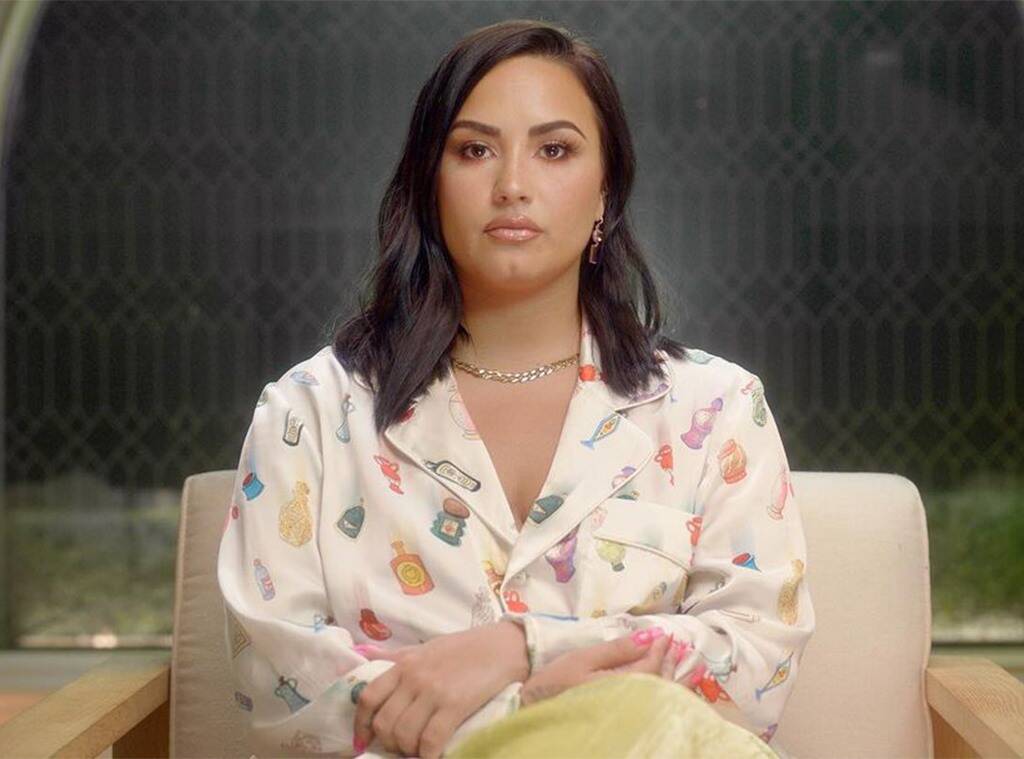Warning: This story contains sensitive topics including sexual assault, eating disorders and drug abuse.
The 28-year-old star’s new four-part documentary, which premieres March 23 on YouTube, was never really, supposed to happen. Sure, Demi was originally filming a doc intended to capture her world tour in 2018, but the project was permanently shelved after Demi’s near-fatal drug overdose.

In July 2018, the pop star was found unconscious at her home in Los Angeles, just one month after revealing she had broken her sobriety. Demi, who battled drug and alcohol addiction in years past, spent almost two weeks in a hospital before undergoing treatment at a rehab facility and then a sober living facility.
his time, the “Skyscraper” singer was sharing the whole story, surprising even her friends who sat down for interviews. “Are we talking about heroin, are we doing that?” her best friend, actor Matthew Scott Montgomery, asks.
“In that documentary, I was allowing the cameras to see the tip of the iceberg. I wasn’t showing them what I was doing behind closed doors,” Demi says of the previous project that was shut down.
Demi recalls after celebrating 6 years of sobriety she thought, “I don’t even know why I’m sober anymore. I am so miserable. I’m not happy. I have all this stuff that I’m dealing with,” she recalls thinking at the time. “I picked up a bottle of red wine that night and it wasn’t 30 minutes before I called someone who I knew had drugs on them. I’m surprised I didn’t OD that night.”

Demi then details exactly which drugs she took that evening.
“I just so happened to run into my old drug dealer from six years before and, like, the odds of that happening were crazy and he had a duffel bag and I just went to town,” she explains. “I went on a shopping spree. That night I did drugs that I’d never done before. I had never done meth before, I tried meth. I mixed it with molly, with coke, weed, alcohol, oxycontin. And that alone should’ve killed me.”
It was on a trip to Bali that she realized she had become “physically dependent” on heroin, which lead her to write her 2018 hit single “Sober.”
The night of her overdose
Demi’s then-assistant Jordan Jackson found the singer unconscious in her bed and quickly called her bodyguard Max Lea.
“I’m just like, ‘Do I call 911?’ What do I do? So I called,” Jordan recalls. “I just remember sneaking downstairs to make the phone call because I didn’t want to get in trouble for calling 911.” She goes on to reveal she was told by someone to request “no sirens” when the ambulance arrived.
She then recounts watching the paramedics “try to bring her back to life. There was one point where she turned blue, like her whole body…I was like, she’s dead, for sure. It was the craziest thing I’ve ever seen.”

If Jordan had waited any longer to go in the room, Demi likely would’ve died. “I had five to 10 more minutes,” Demi says. “I’m really lucky to be alive.”
“I had three strokes, I had a heart attack, I suffered brain damages from three strokes,” she explains. “I can’t drive anymore and I have blind spots in my vision, so sometimes when I go to pour a glass of water, I’ll like, totally miss the cup because I can’t see it anymore. I also had pneumonia ’cause I asphyxiated and multiple organ failure.”
But the most impactful injury for Demi was losing her vision and being unable to see her little sister, Madison De La Garza.
“I was legally blind when I woke up and my little sister was at my bedside and I was so blind I couldn’t see who she was,” Demi recalls. “She just started sobbing because she thought from then on I wouldn’t be able to see.”
“When they found me, I was naked, I was blue, I was literally left for dead after he took advantage of me. And when I woke up in the hospital, they asked if I had had consensual sex. And there was one flash that I had of him on top of me, I saw that flash and I said yes.”
But a month later, Demi says she realized she wasn’t “in any state of mind to make a consensual decision” and “that kind of trauma doesn’t go away overnight and it doesn’t go away in the first few months of rehab either.”
And when Demi relapsed after her overdose, she called the drug dealer because she “wanted to rewrite his choice of violating me,” she says.
“I wanted it now to be my choice and he also had something that I wanted, which were drugs,” she continues. “I called him back and I said, ‘No, I’m going to f–k you.’ It didn’t fix anything, it didn’t take anything away. It just made me feel worse, but that, for some reason, was my way of taking the power back. All it did was bring me back to my knees begging God for help.”
“I know what I’m about to say is going to shock people too, but when I was a teenager I was in a very similar situation,” Demi says. “I lost my virginity in a rape. I called that person back a month later and tried to make it right by being in control and all it did was just make me feel worse.”
“We were hooking up and I said, ‘Hey this is not going any further, I’m a virgin and I don’t want to lose it this way,’ and that didn’t matter to them. They did it anyways. I internalized it and I told myself it was my fault because I still went in the room with him, I still hooked up with him.”

“F–k it, my #MeToo story is me telling somebody that someone did this to me and they never got in trouble for it,” Demi alleges. “They never got taken out of the movie they were in. But I’ve just kept it quiet because I’ve always had something to say, and I don’t know, I’m tired of opening my mouth. So there’s the tea.”
She concludes by saying, ” I have full faith that you’re not going to open up TMZ and see another overdose headline. But I also say with humility that this is a very powerful disease and I am not going to pretend that I am invincible. I have to work every day to make sure that I am in a good place, so I don’t go to those things.”



